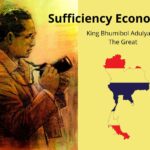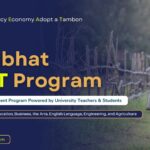A New Thailand Curriculum Framework (Competency-Based)
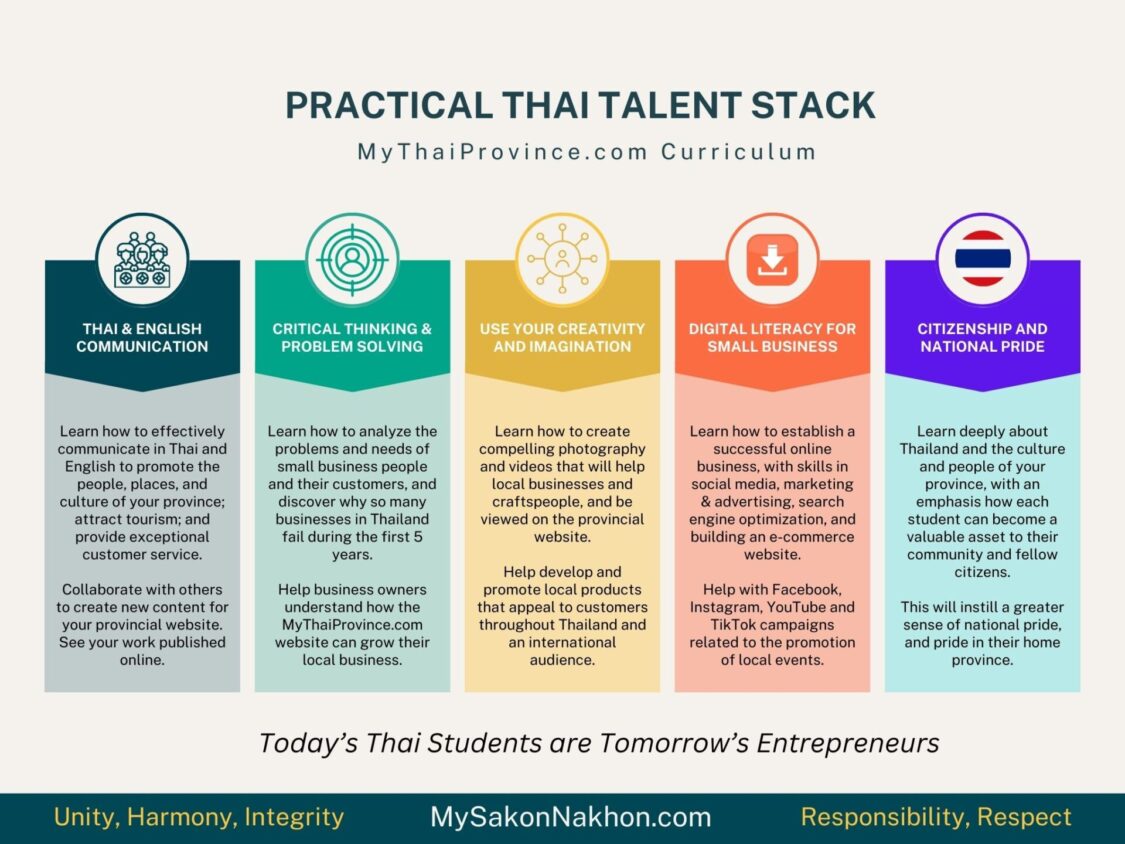
For decades education reform has been on the agenda in Thailand, with experts encouraging a transition from the current content-based curriculum to a competency-based curriculum (CBC). This new curriculum framework would emphasize the acquisition of skills and knowledge that can be applied to daily life, instead of the rote content learning that typifies the education system in Thailand.
The critical need for Thai education reform and new curriculum framework was amplified recently with the announcement that Thailand has received its lowest scores ever in the Programme for International Student Assessment (PISA) rankings, which measure student ability in reading, mathematics, and science.
The Thai government has convened a new team to grapple with the “Education Crisis”. However, such teams have been convened repeatedly over the years, and they always struggle with how reforms and a new curriculum can in implemented in Thailand, because there are large disparities in school resources, teacher skills, and local needs and opportunities.
Building a Competency-Based Curriculum in Thailand
In Kenya, the Institute of Curriculum Development designed a Competency-Based Curriculum (CBC) with 7 core competencies: Communication and Collaboration, Imagination and Creativity, Critical Thinking and Problem Solving, Learning to Learn, Digital Literacy, and Citizenship (the development of which are guided by the universal values of Love, Unity, Respect, Responsibility, Peace, Integrity, and Patriotism).
These values and competencies match well with the “Thai context,” which is why so many Thai scholars have argued that a new competency-based curriculum should be a cornerstone of education reform in Thailand. The biggest hurdle (as mentioned earlier) is how to implement such a curriculum. Simply importing foreign textbooks, or having Thai educators use these textbooks as a model for writing their own textbooks, rarely works — as has been shown repeatedly for decades.
Thailand education reform needs to be homegrown. One can look toward other countries (such as Kenya) for basic ideas in developing a new Thailand curriculum framework, but the framework needs to be uniquely Thai, taking into consideration Thailand’s cultural and economic landscape.
For a competency-based curriculum framework to succeed in Thailand, it needs to be a flexible framework that can be applied effectively throughout the country, or rather it needs to be composed of multiple frameworks that can be integrated and adjusted as needed, depending on school resources, traditional village wisdom, teacher skills, and local economies.
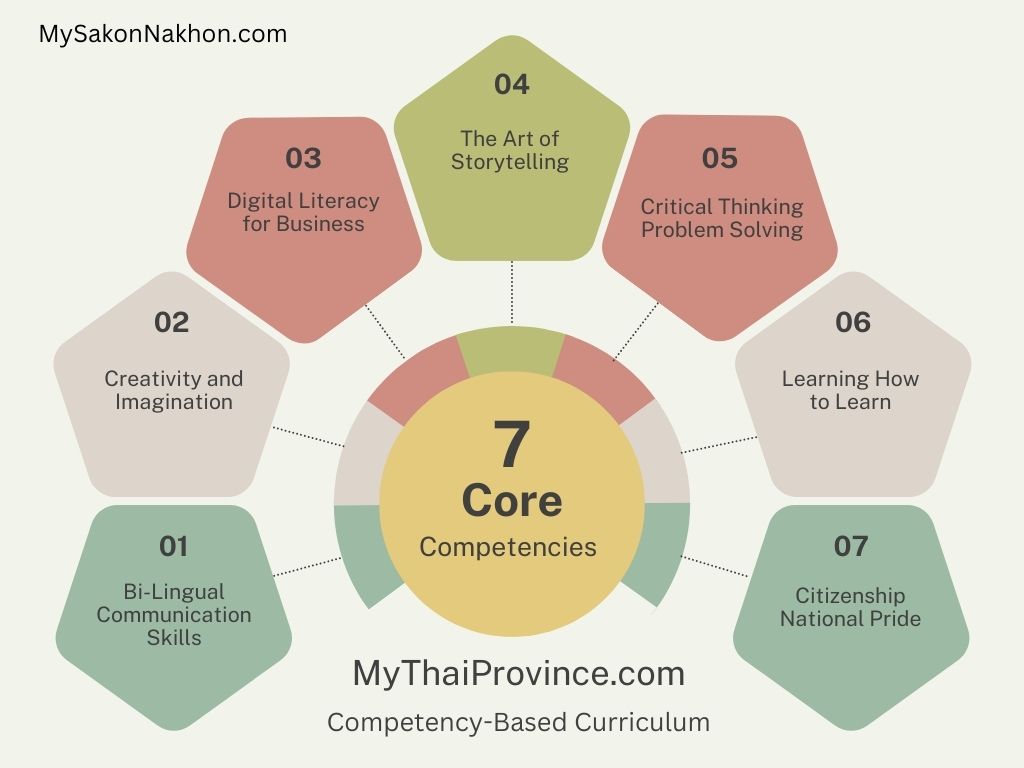
A New Thailand Curriculum Framework for Entrepreneurs
While the low PISA rankings have ignited the recent demand for education reform in Thailand, such reform should involve much more than improvements in the teaching of reading, math, and science. While academic fundamentals are essential, it also is important to recognize that roughly 50% of Thai adults work for themselves or are small business owners. And a large percentage of those who aren’t self-employed, wish they were.
Thailand is an entrepreneurial country. But it’s also one where 80% of SME’s fail within the first 5 years. It’s well past time to start teaching the next generation of Thai entrepreneurs the skills they need to succeed in small business (and realize the big risk of opening yet another coffeehouse). Thai education reform should therefore include a competency-based curriculum framework that teaches the skills that can help any type of small business succeed, especially the online skills needed to market local Thai products throughout Thailand and internationally.
MyThaiProvince.com – A Competency-Based Curriculum Framework
One of our goals when we launched MySakonNakhon.com was eventually to use the website as a model for other provinces that wish to promote their culture, people, history, and small businesses. This goal includes the development of teaching materials, and a curriculum where the website serves as a learning hub for students, a place where they can master many of the core competencies of a CBC framework, all the while developing the economy of their communities, villages, and province.
We are still far away from realizing this goal. But since there is increased urgency for education reform in Thailand, and the development of a new competency-based curriculum framework, we would like to present a preliminary outline of our curriculum, which may be of interest to Thailand’s Ministry of Education and scholars at Thai universities.
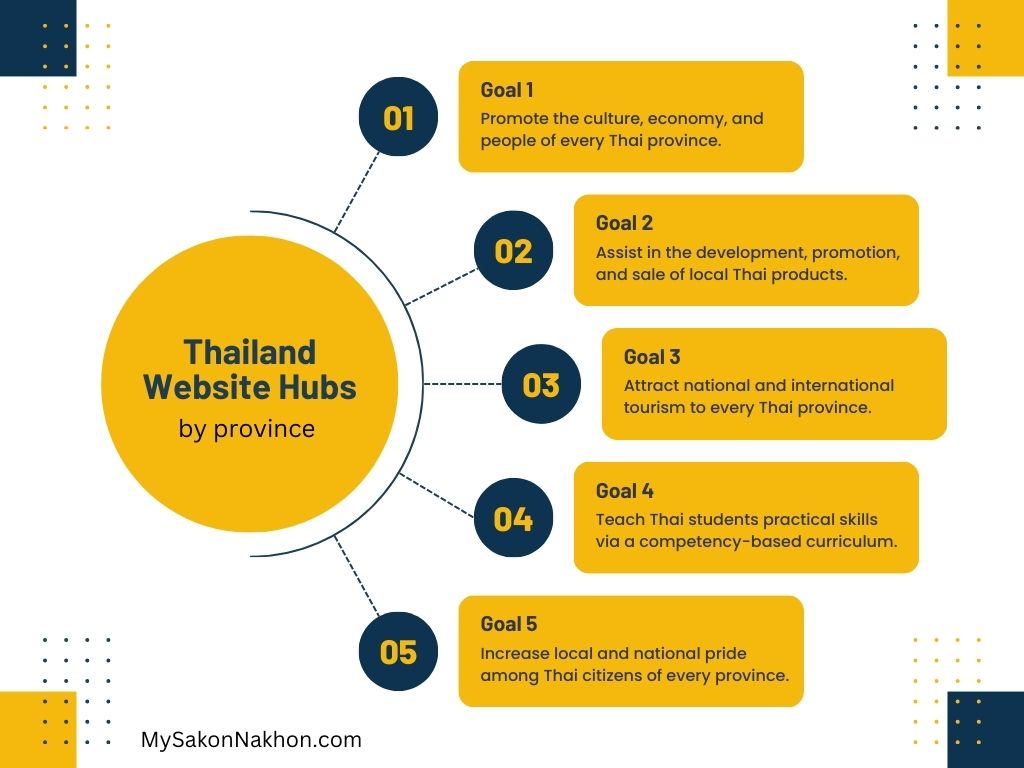
Integrating New Provincial Websites into a Larger CBC Framework
New bi-lingual (Thai-English) provincial websites could be established with the dual purpose of 1) promoting the economy, culture, history, and people of the province; and 2) serve as a learning hub for all students in the province, especially students of Matthayom Schools, Technical Colleges and Rajabhat Universities.
Students would not only learn from material published on the website, they (more importantly) would learn practical skills by contributing to the development of the website and its associated social media accounts, such as Facebook, Instagram, YouTube, and TikTok.
These website could use MySakonNakhon.com as a model for development, and might go by names such as MyChachoengsao.com, MyNongKhai.com, MyKanchanburi.com, etc.
As far as existing provincial websites in Thailand, these will not be impacted by the new proposed websites, as they generally serve other local needs, and have not been developed with the same goals in mind.
The MyThaiProvince.com curriculum would teach students:
Communication & Collaboration: Students will learn how to communicate in Thai and English in effective ways to promote the people, places, and culture of their province; attract tourism; and provide exceptional customer service. Students will collaborate together in creating new content for their “MyThaiProvince.com” website, and take pride in seeing their work published online.
Creativity & Imagination: Students will use their creativity and imagination, while learning how to create compelling photography and videos (which will appear on the provincial website), and how to develop and promote local products that appeal to customers throughout Thailand and internationally.
Digital Literacy for Business: Students will gain digital literacy by learning how to establish a successful online business, with skills in social media, marketing & advertising, search engine optimization, and building an e-commerce website.
The Art of Storytelling: Students will learn how to tell fascinating stories about the culture, people, and places of their province, and about the Kingdom of Thailand, in ways that attract tourism and an audience for any product or service that is being sold.
Critical Thinking & Problem Solving: Students will gain critical thinking and problem solving skills by learning how to analyze the needs of local small business people, why so many Thai businesses fail during the first 5 years, and how the MyThaiProvince.com website can help them grow their business.
Learning to Learn: Students will be shown the tools and methods for self-guided learning in the context of establishing a successful small business in Thailand.
Citizenship & Pride: Every MyThaiProvince.com website will help students learn deeply about Thailand and the culture and people of their province (much more deeply than was ever taught before), instilling in them a greater sense of pride in their Thai nationality and membership in their local community. Students also will learn how they can become valuable assets to their village and province.
Leveraging the Skills of Foreign Educators in Thailand
While many foreign English teachers in Thailand lack professional experience and training (and only stay in the country for a few years), there are foreign educators who have built a life in Thailand, and lived here for over a decade. There are also retired foreigners in Thailand with valuable professional experience who would welcome the opportunity to share their skills and wisdom, contributing to the development of their adopted home.
Thailand’s education system could benefit greatly by tapping into this pool of talent when implementing education reform, and not relegate skilled foreign educators to simply teaching basic ESL classes, as has often occurred in the past. For example, foreign educators and retired professionals (with valuable relevant experience) could be hired as English editors and advisors to MyThaiProvince.com websites, while also providing training to Thai teachers who are implementing the competency-based curriculum.
The Kingdom could also start attracting better qualified foreign teachers by offering those who settle down in Thailand permanently long term contracts and all the rights, privileges, and opportunities that their Thai colleagues enjoy, as well as easier access to Thai citizenship (which currently requires a minimum monthly salary of 40K a month, which is above the salary that most Thai schools and universities pay).
However, having said this, it is important to keep in mind that English language competency doesn’t supersede advanced Thai language competency. As we have argued in the past, when it comes to overall education reform in Thailand, greater attention should be paid to teaching the Thai language (and its regional dialects), and less time spent on English. To learn more, read our article on Thailand Education Reform.
Anyone who is interested in further information regarding our proposed Competency-Based Curriculum Framework for Thailand, please send us a message via our Contact Page.
- Affirmations in Buddhism & Thailand - June 7, 2025
- Speak Thai Naturally Without the Gymnastics - April 20, 2025
- The Best Learn Thai Podcast and YouTube Channel - April 10, 2025


